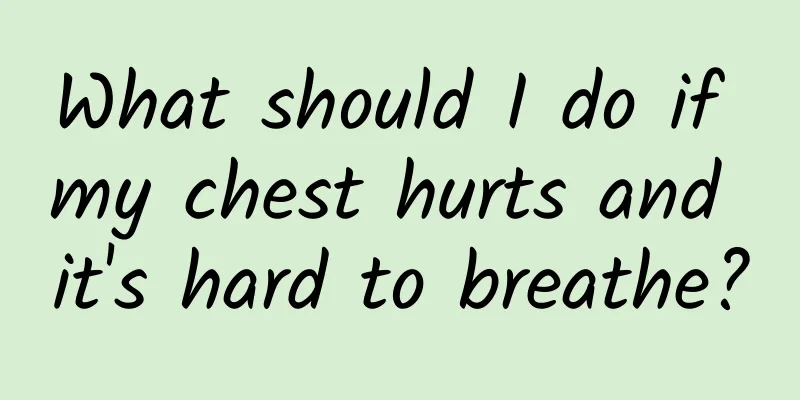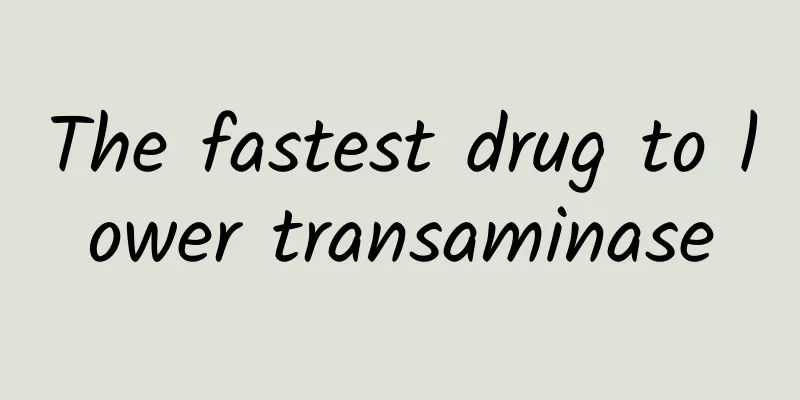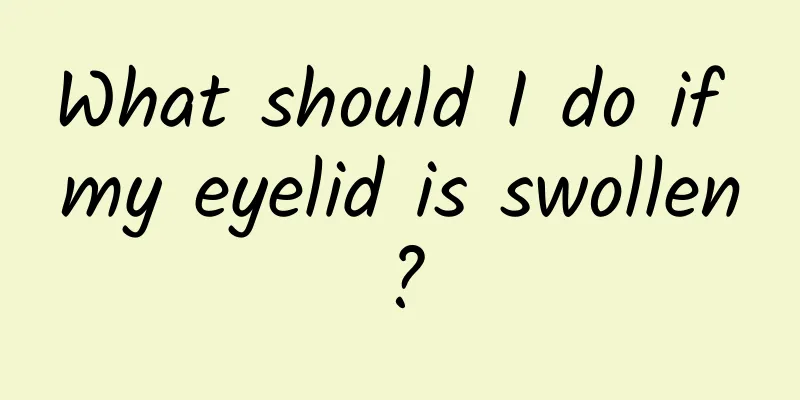What should I do if my chest hurts and it's hard to breathe?

|
Many people always feel uncomfortable in their chest. The feeling of chest discomfort may be caused by coronary heart disease or heart disease, myocarditis, or lung function problems, which can also cause chest discomfort. Most people who usually have chest discomfort also have difficulty breathing, and often have symptoms of coughing or difficulty breathing. You need to check whether they have taken any medications recently or have bad habits, etc. What's wrong with my heart? Discomfort in the chest is mostly not caused by diseases such as coronary heart disease. One of the reasons may be emotional problems. Because the competitive pressure in society is relatively high, some people have to be in a state of tension and anxiety for a long time, which can easily cause chest pain or symptoms such as chest tightness. In addition, bad habits such as long-term drinking and smoking, irregular rest, and some improper diet can all induce chest pain or chest tightness. Regardless of whether there is a family history of coronary heart disease or not, these symptoms will often appear if you drink a lot of alcohol and stay up late in a short period of time. For those who have had recent trauma, or have incorrect sleeping posture, or often sleep on their stomachs, these can easily cause some discomfort in the chest, so you must pay attention to what the cause is and then carry out corresponding treatment. The main causes of breathing difficulties are as follows: 1. Pulmonary dyspnea: 1) Inspiratory dyspnea - commonly seen in larynx, trachea, bronchial stenosis, etc.; 2) Expiratory dyspnea - common in chronic obstructive pulmonary disease, bronchial asthma, diffuse panbronchiolitis, etc.; 3) Mixed dyspnea - common in severe pneumonia, severe pulmonary tuberculosis, large-area pulmonary infarction, pneumothorax, extensive pleural lesions, etc. 2. Cardiac dyspnea: Common in left and right heart failure, etc. 3. Toxic dyspnea: Such as drug poisoning, diabetic acidosis, etc. 4. Neuropsychiatric dyspnea: Commonly seen in patients with severe craniocerebral diseases (such as cerebral hemorrhage), hysteria, etc. 5. Hematogenous dyspnea: Common in severe anemia, methemoglobinemia, etc. |
<<: Why does my left chest hurt when I breathe?
Recommend
What symptoms will occur if the blood is too thick?
The blood is too thick, which actually refers to ...
What are the acupuncture points for traditional Chinese medicine massage?
There are many acupuncture points on the human bo...
What causes pain in the bone joints?
The hardness of human bones changes with age, so ...
What to do if your child has a fever and blisters in the mouth
If a child has a severe fever, it often causes bl...
Red packet on the tip of nose
Everyone is very concerned about their face, whic...
Dizziness, nausea, weakness, general weakness
Dizziness, nausea, weakness, and general weakness...
How to deal with caterpillar stings
Caterpillars are the larvae of moths or butterfli...
6 kinds of food that kidney patients should avoid! These are what you should know!
With the changes in today's living environmen...
How can I have an abortion?
Some female friends become pregnant unexpectedly ...
What are the effects of drinking after exercise?
After exercise, the body's blood circulation ...
The effect of drinking dried monk fruit soaked in water
Luo Han Guo is a fruit unique to Guilin. It can b...
Chronic bronchial asthma
Everyone should know about asthma, and there are ...
What are the effects of Prazone tablets
Fiprazon tablets are a common medicine in life. T...
What are the benefits of Chinese medicine massage?
There are many diseases that are not very effecti...
Uses of Sodium Nitrite
Sodium nitrite is something that many people are ...









